CAMERA BUFF. Krzysztof Kieslowski’s Early Masterpiece
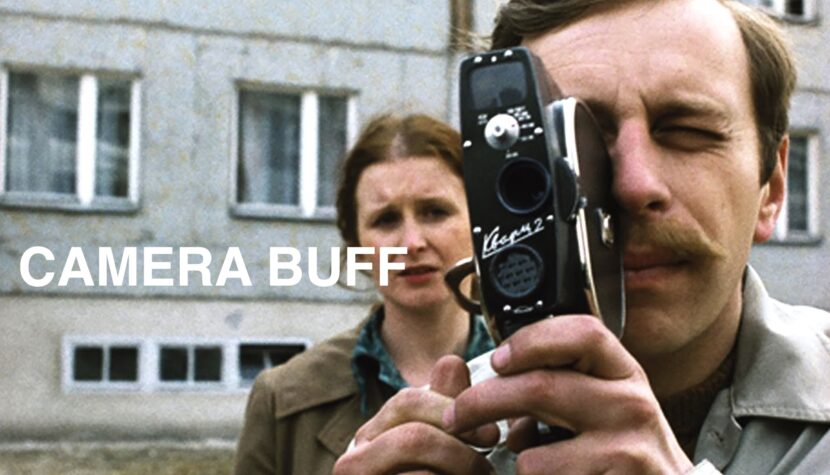
Feliks Falk, Edward Żebrowski, Andrzej Wajda, Stanisław Różewicz, Marcel Łoziński, Grzegorz Królikiewicz, Krzysztof Zanussi, Agnieszka Holland, Wojciech Marczewski, and Janusz Kijowski, among others, were well aware of the deeper significance of the constant presence of such characters on screen. For Krzysztof Kieślowski, he represented something more – a principle of his directorial vision, a tested and reliable medium for conveying what is most important, and at the same time, a true artistic obsession.
He was able to precisely document Poland, reflecting the lives of ordinary people. His films serve as a model not only for filmmakers’ endeavors. They are analyzed, discussed, and commented upon. Today, Kieślowski is a classic, an icon of Polish and European cinema. Camera Buff
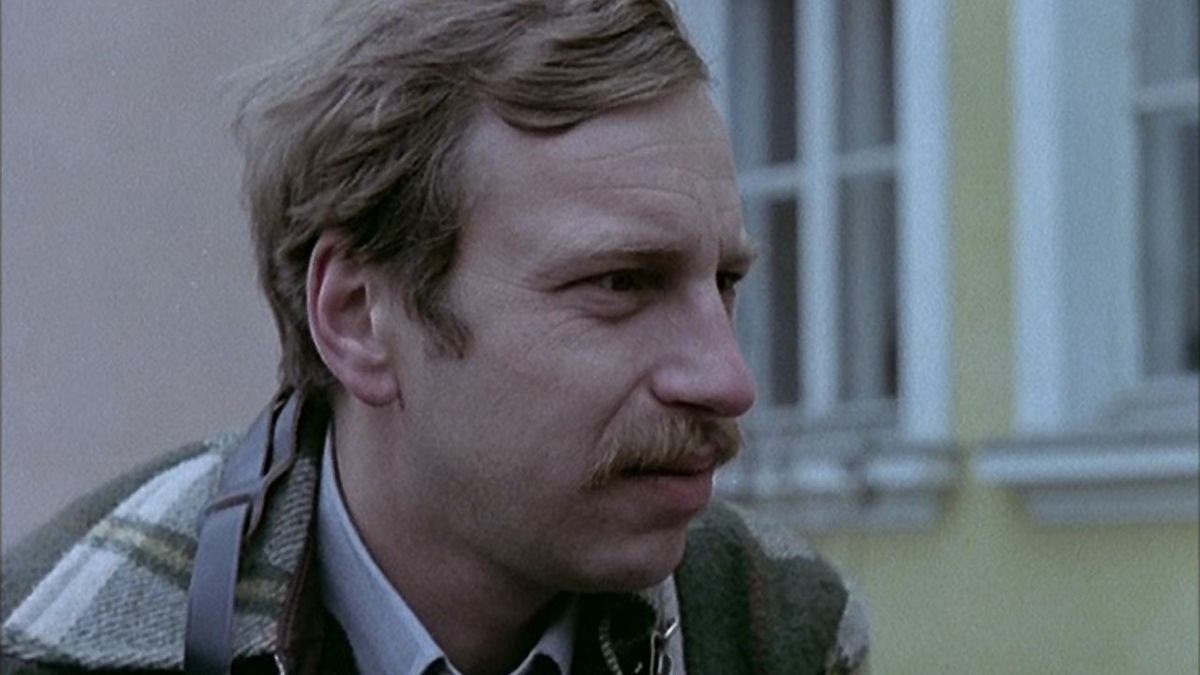
The new way of presenting Polish realities reflects the invigorating atmosphere of those years. This was clearly visible in Polish cinema, where the previously simple man was the opposite of the artist with his dilemmas, individualism, different perspective on the world, and detachment from reality. But what happens when one day he himself becomes such a person, when he takes on the burden of being a creator of this reality, adopting his tasks, role, way of thinking, and feeling? This topic is worthy of a film. The amateur filmmaker from a town near Kraków will never be Godard or Bergman, but one day he may discover and personally experience how great a responsibility lies with the person behind the camera as a creator of images. Kieślowski’s work, and his personality, satisfied a long-existing hunger in cinema.
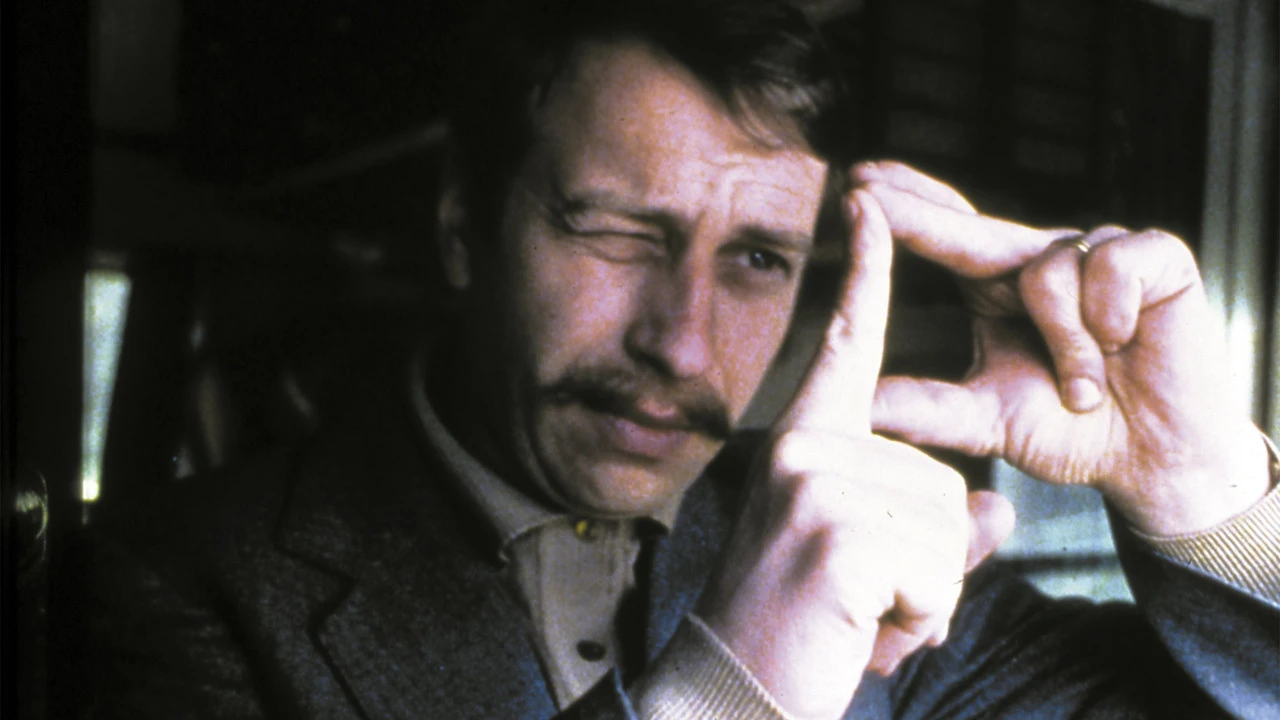
At the beginning of the story, it goes like this: in rather random circumstances, factory worker Filip Mosz, employed as a supply officer and owner of a Krasnojarsk camera, receives a proposal from the factory director to film the company’s jubilee celebrations. However, this is far from any “artistry.” The thing is, the role of a film chronicler is no longer enough for the protagonist of Camera Buff. He begins to be drawn to something exciting and previously unknown. Filming starts to awaken a different person in him. The camera reveals to him an unforeseen possibility of self-realization – it opens up a new world to him, one that he himself shapes individually.
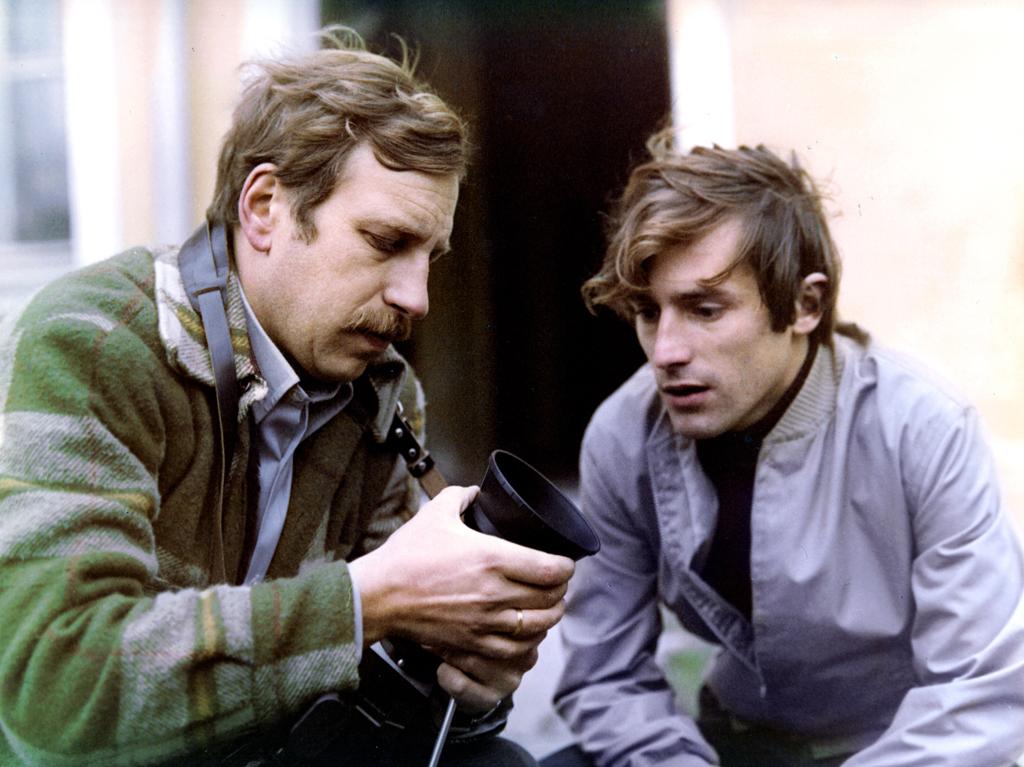
In that period, Krzysztof Kieślowski’s artistic obsession was a meticulous concern for an authentic depiction of reality in every detail as a guarantee of the truthfulness of everything that appears on screen – he treated the camera as a significant background for the inner experiences of the protagonist. In this respect, both Kieślowski the documentarian and Kieślowski the storyteller had no equal in Polish cinema. His experience with Jerzy Stuhr taught him that outstanding actors could give their characters – and the entire film – an additional dimension. There are many anecdotes about this, but they all fundamentally speak of one thing: in portraying a person and showing the surrounding reality, he was a stubborn perfectionist for whom only absolutely unquestionable truth mattered – situations, costumes, props, behaviors, gestures. Kieślowski characterizes the places where the protagonists play important dramatic roles. The creator restored to cinema the often forgotten sense of the tragedy of human fate, which must be faced.
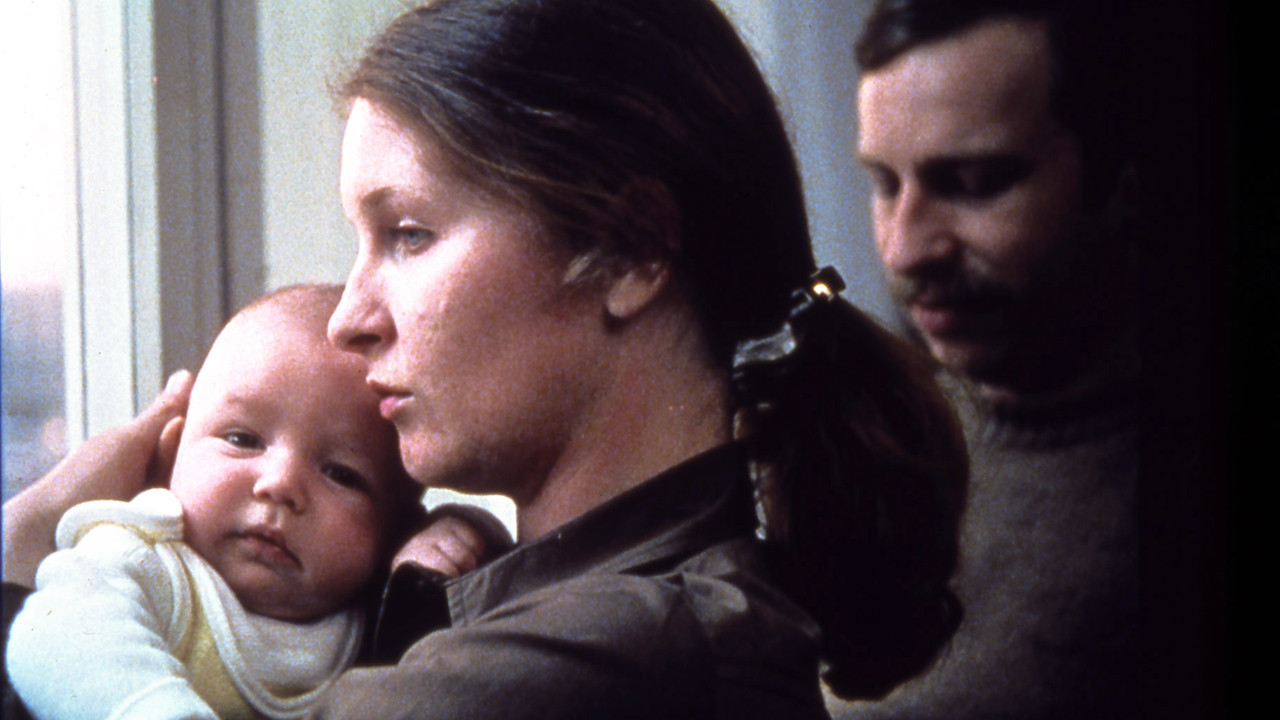
Thus, we are dealing with a realistic portrayal of the reality of that time. This was true in Kieślowski’s earlier films: The Calm, First Love, The Staff, The Hospital, The Scar, and The Underground Passage. From this obsessive need, in terms of consistency in his artistic and ethical pursuits, the protagonist of Camera Buff was born – Filip Mosz – an ordinary citizen of the People’s Republic of Poland, living in a medium-sized provincial town, embodying the essence of gray mediocrity in his fundamental social stratum. One day, the titular character wakes up from a years-long lethargy and discovers his own uniqueness and genuine values. The filmmaker Mosz begins to exist in a broader dimension than before. He feels needed and important to others, responsible for what he does. From the moment he takes the camera in hand – he loses anonymity, strives to discover the truth, becomes someone, gradually gaining individual features.
The film’s image becomes a derivative of individual choice and a panorama of spirituality. The world of values is only a starting point, not the end of the search. It is both real and integral, autonomous within the boundaries of human interiority, conscience, and soul. Each fate – the director suggests – turns out to be fascinating, something stunning and admirable if only we look closely.
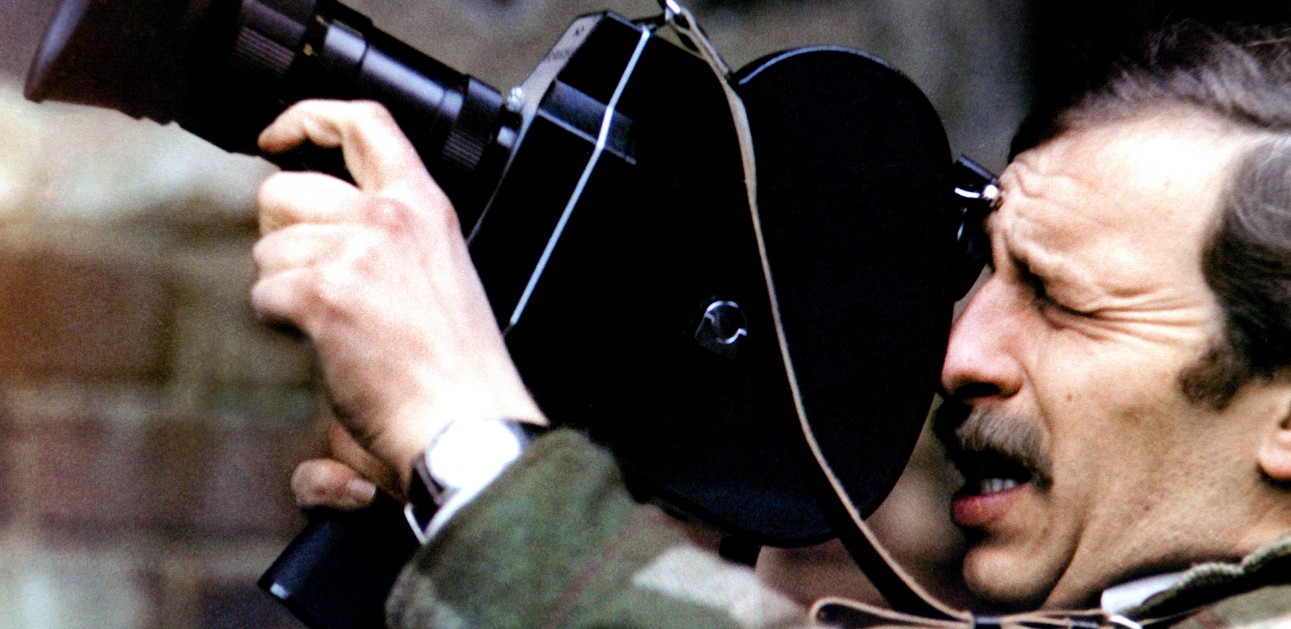
The liberation of the filmmaker Filip Mosz is first stepping beyond the narrow confines of the daily ritual of a peaceful, unremarkable existence – work, home, family. Filming everything he sees around him becomes for him a form of universal communication and an increasingly conscious description of the surrounding reality. He learns the importance of responsibility, the limits of creative freedom. From there, it’s only a small step to creative action. Then come further stages and turning points in his life – an independent decision, conflict with the director, family quarrels, protest, and stubborn persistence. Finally, the fight to maintain fidelity to oneself despite various adversities.
In a spiritual sense, Filip Mosz – Camera Buff is reborn. This scheme forms the starting point of the plot – we see him mature to the situations and realities in which he lives. Seemingly unremarkable and uninteresting, he turns out to be an extremely valuable person: thoroughly honest, sensitive to human suffering and injustice, fully authentic, and – in increasingly complicated situations and dependencies – capable not only of bold, sincere, and uncompromising defense of his views but also of a difficult compromise arising from hesitations and dilemmas, and even conscious resignation from something he otherwise greatly cared about. The subjective camera allows the viewer to embody his character.
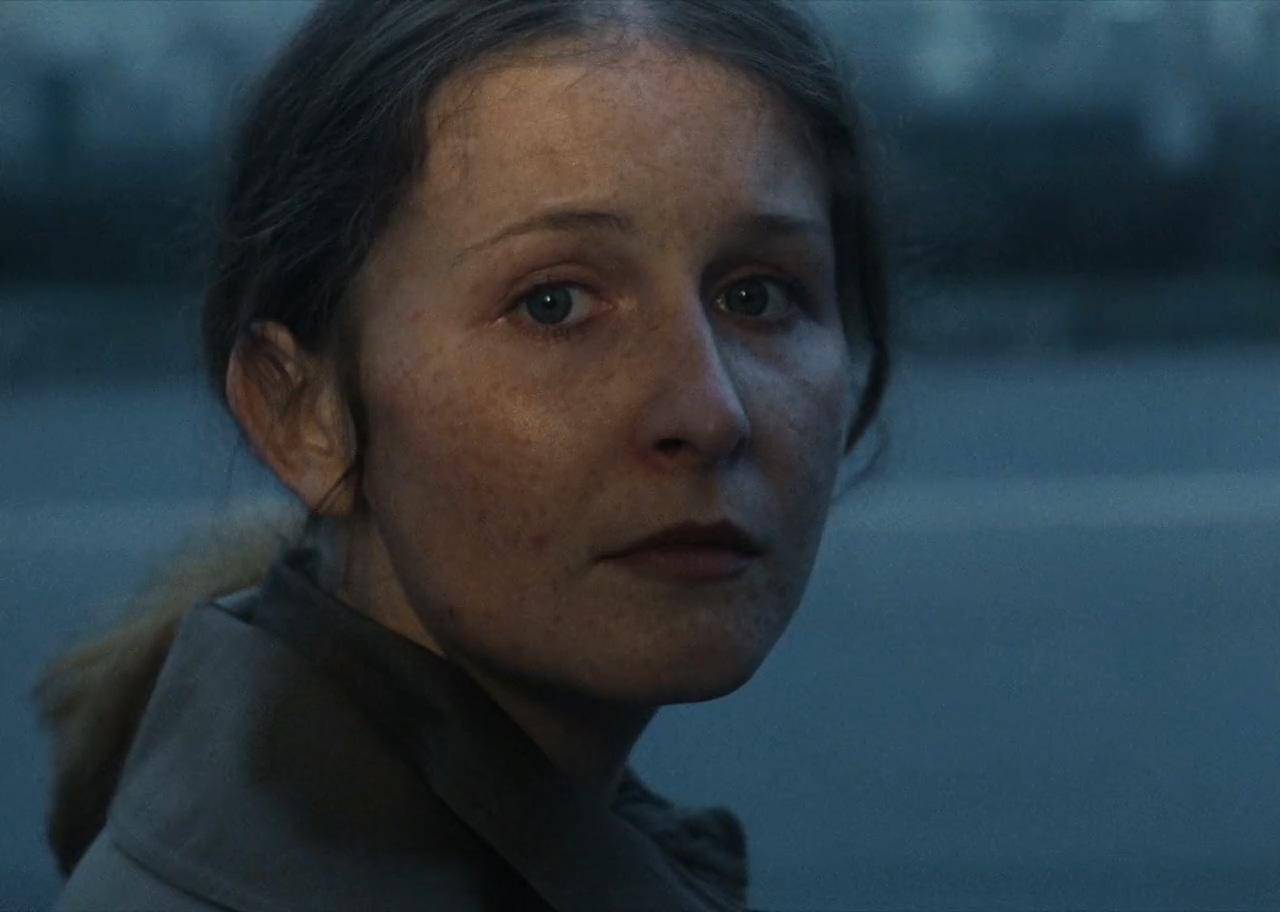
Not only has the on-screen Filip Mosz changed. The film also became a turning point for Krzysztof Kieślowski. A few months before completing Camera Buff, in an interview with Hanna Krall titled I Did It and I Have It, the filmmaker answered the question “Why do you make films?” by saying:
To record. I am very attached to the real reality because what exists is wiser and richer than my visions and myself, and recording this existence is completely sufficient for me.
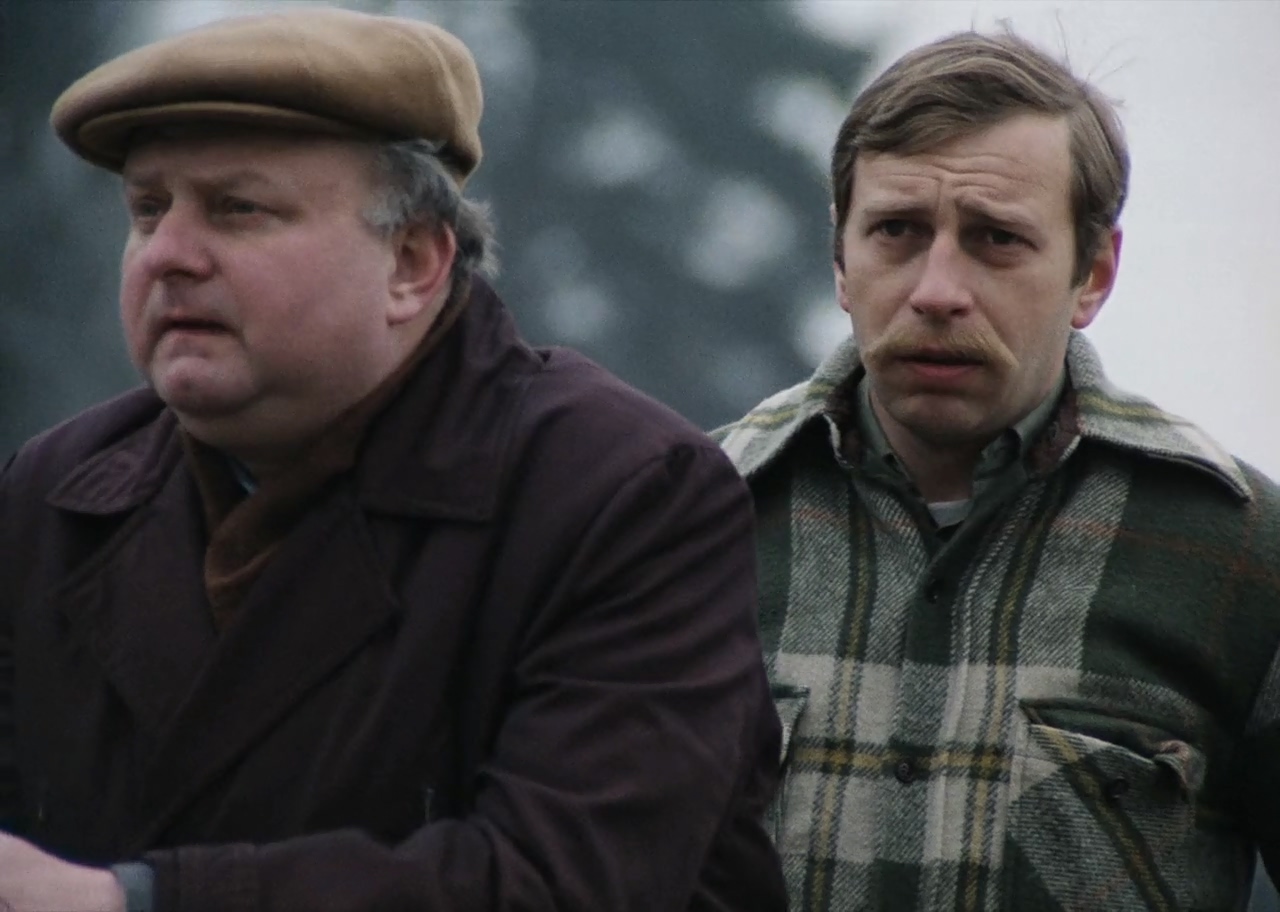
However, the ending of the work, which the director long sought and with which he persistently wrestled, indicates something entirely different. Kieślowski was able to use an extremely expressive shorthand already in The Calm, like galloping horses, to give the images – already overly burdened – a shocking dimension.
The final scene of Camera Buff is characterized by surprising, clearly divergent ambiguity from the previous formula of the “cinema of moral anxiety.” The appearance of this image presents the psychological depth of unspoken implications. No previous film of this trend had ended with such suggestive power, in such an open manner. The sense of this scene lies partly in the fact that the protagonist directs the camera at himself, beginning to tell the story of his life. This premise allows for a symbolic interpretation of the concept proposed by the director – it is a celebration of human passion.
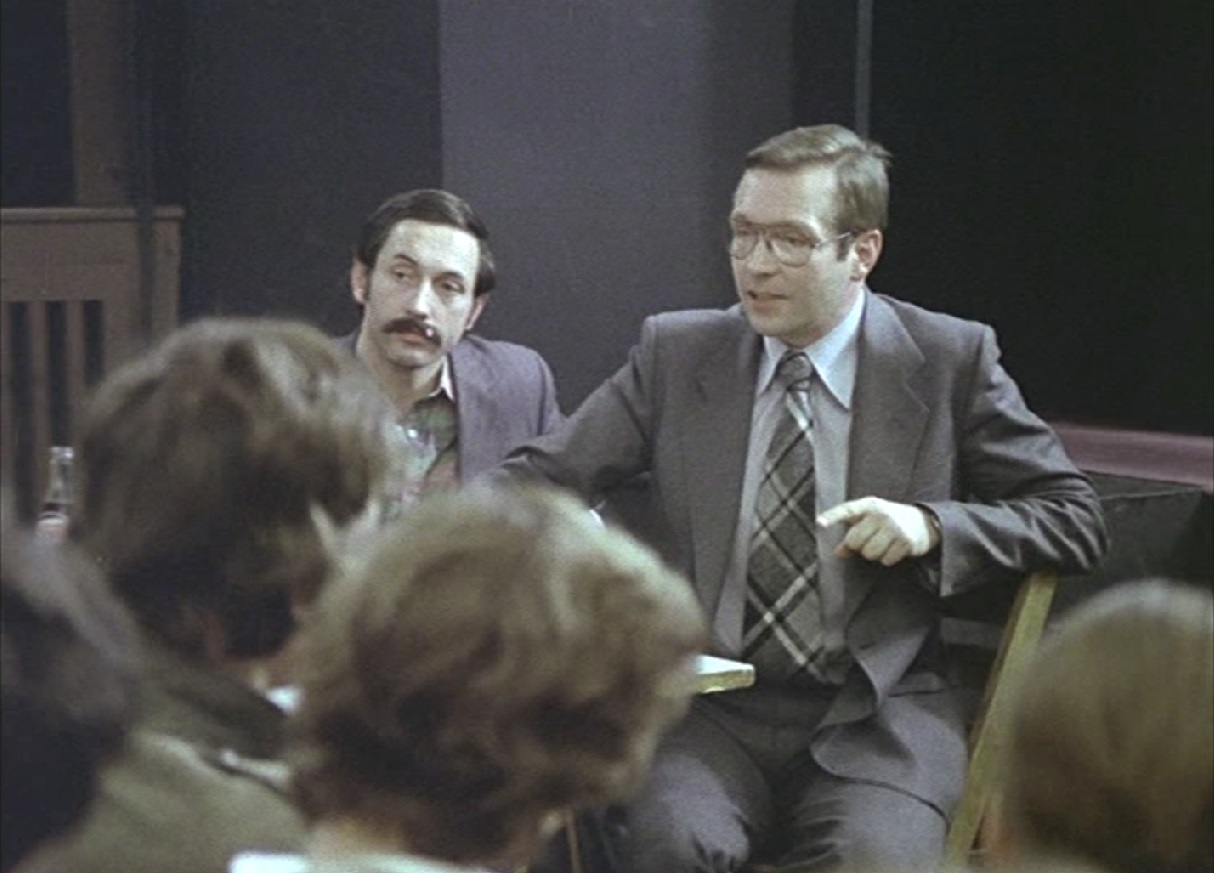
So far, there has been no film throughout the entire 1970s that portrayed Polish reality so consistently and expressively, exposing it in an extremely meticulous manner, in every detail. The mastery that Krzysztof Kieślowski achieved in this field reached its peak and conclusion at this moment. The director of Camera Buff conveys something radically different about himself – the end of politics, the end of immediate intervention. Kieślowski emphasizes the daily arduous effort, the belief in the victory of good over evil. The world does not end with the narrow frames of the Communist Poland universe. We must seek not breadth, but depth. Our life is much fuller and richer than the mundane whims and circumstances in which we live. We need to discover another dimension of our existence – to discover it within ourselves. We must look from a perspective broader than any worldview, excluding everything that hinders us from living the fullness of our own existence.
Words by Piotr Berndt

